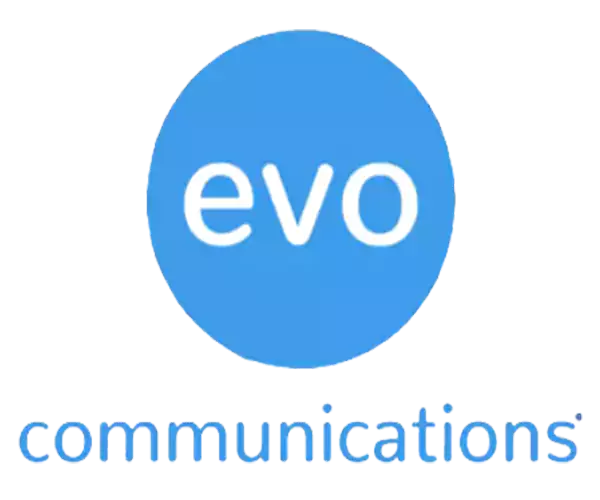A Commonsense Approach to Budgets
Remember when eggs had such a bad rap because of their cholesterol content that many Americans banned them from their diet entirely? Then came the Atkins revolution and suddenly eggs fried in butter with a side of bacon was considered a healthy choice. Both extremes ignored the option for a commonsense, middle ground approach — the one most dietitians would recommend today.
A similar pattern has been playing out for budgets in small and mid-size companies. Many business owners are determined to avoid budgets altogether, for fear that they might be the start of an artery-clogging bureaucracy that would hamper flexibility. Others immerse themselves in the process with such rigidity and to such excess, that the real benefits aren’t realized.
As with most things, a balanced approach provides the healthiest answer. That requires us to debunk some of the myths that feed into the black (no budget at all) or white (a rigid budget carved in stone) extreme thinking that is common on this topic.
Myth: If I create a budget I need to stick with my initial estimates and decisions for 12 months.
Now, it doesn’t make any sense to create a budget and then ignore it or make decisions without regard to your original plans, but here’s an often forgotten tidbit: your budget is yours. You don’t file it with the IRS, you’re not legally bound by its contents and you (hopefully) didn’t make a pinky-swear promise to adhere to it with unwavering exactness. By some estimates, almost 80% of companies that create budgets don’t change them even once during the fiscal year. That’s not how things work in real life. You can and should change your budget as circumstances require. Budgeting for a shorter time frame, such as quarterly, might also be a viable option for your company.
Myth: I won’t be able to react as flexibly to an unforeseen crisis if I have a budget in place.
The reality is that companies that create budgets tend to be more flexible and more proactive than companies without budgets. When you’re actively tracking your progress toward a specific goal, you can tell much earlier on if you’ve hit a snag. You can react while the situation is smaller and more manageable, and sometimes you can even see a problem before it occurs.
Myth: The budgeting process is too complicated and time consuming.
Well, this is actually true for too many companies, but it doesn’t have to be. Many companies spend months agonizing over their budgets and devote upwards of 20% of management’s time to their creation. Although a certain level of detail is needed if the process is going to be effective, budgets can be fairly simple. And the time you invest in planning upfront is never wasted. It’s time you save down the road reacting on the fly to decisions that need to be made anyway.
Myth: Things change too quickly in my industry for me to commit to a budget.
Sorry. Conditions change at break-neck speed in every industry, and it’s not a valid reason to excuse yourself from planning for the future. A budget doesn’t ask you to predict unknown events (i.e., Will gas prices go up? Will I have turnover in staff? Will new legislation be passed that impacts my business?). A budget requires you to look at the big picture and commit to the goals you want to achieve and the actions you plan to take — things that are largely under your control. If you’re unable to look critically at your business and determine what it is you want to accomplish in the next 12 months, you need to ask yourself why that is.
Myth: Budgets are meaningless. Everyone just fudges the numbers to paint a pretty picture of how things ought to look.
Creating a budget that is based on too-lofty goals, hoping it will provide the inspiration to achieve them, is a sure-fire way to set yourself up for failure and frustration. One post on the internet compared budgets to pornography: “a fantasy about how the author would like the world to look, having no relation to the realities of the world, designed to titillate, stimulate and motivate the reader, but ultimately resulting in a sense of alienation and despair.” Long-term, that’s of no use. When it comes to budgets, keep it real.
Myth: I have a budget, it’s just in my head not on paper.
Keeping a mental note of your company’s projects, numbers and expenses is a bit overambitious. You may be able to do it for a while, but eventually your business reaches a size that makes it impossible for you to keep in tune with all of the details. If you have managers and employees working for you, it also prevents them from taking on some of the ownership and accountability for results with you. Even if you don’t feel like you’re big enough for a budget right now, you will be one day. It’s never too early to start a good habit.
Remember, budgeting is simply planning. It forces you to step out of the day-to-day details and look strategically at your business, to take stock of where you are and to set a goal for where you want to be. And let’s face it, without a formal tool in place that nudges you to action, that kind of planning is likely to take a back seat to all the other daily crises that demand your attention.
When you budget you’re really just translating your business plan into numbers. And when your budget is complete you have a tool that you can use to check progress toward that business dream, to predict cash flow and profit, to make good decisions and to identify problems before they occur.
Incorporating budgets into your mix of business processes can boost the financial health of your company. Don’t abstain any longer, but don’t overindulge either.
One of the best ways to gain a macro view of your business is through SG&A Reporting.
If you’re looking for a trustworthy bookkeeper or accountant, contact us today to learn how OWL can help you.

Learn More About How OWL Can Help You
Bookkeeping
Whether you need help with accounts payable, payroll or your monthly close, our accountants ensure these critical tasks are completed accurately and on time so that you have no business disruptions.
Accounting
When your books are up to date, you can respond to opportunities and challenges quickly. Accurate, bank-ready financials allow you to make better decisions for your company.
Financial Planning
Gain access to powerful insight typically only available to companies that employ a full-time controller or CFO. Leverage their expertise when you need it, without adding to your payroll.
Freedom to Focus on Your Business
Our Partner Organizations →


















Get the Full View of Your Business Financials
Just like an owl can turn their head 270 degrees to see the whole landscape, Owl Bookkeeping and CFO Services can help you see your full financial picture.

